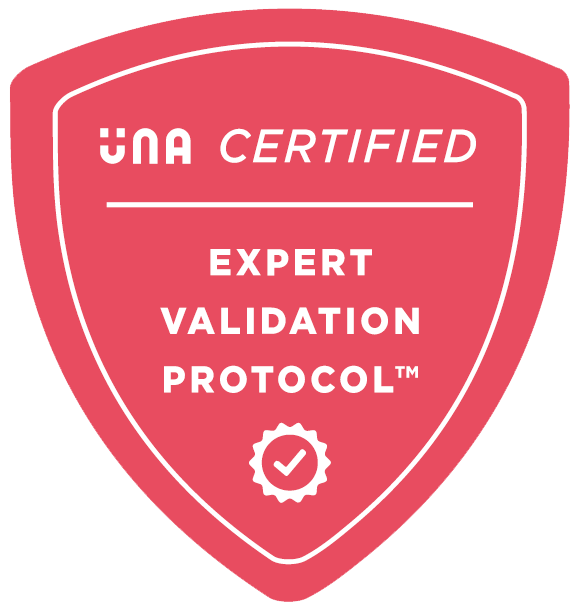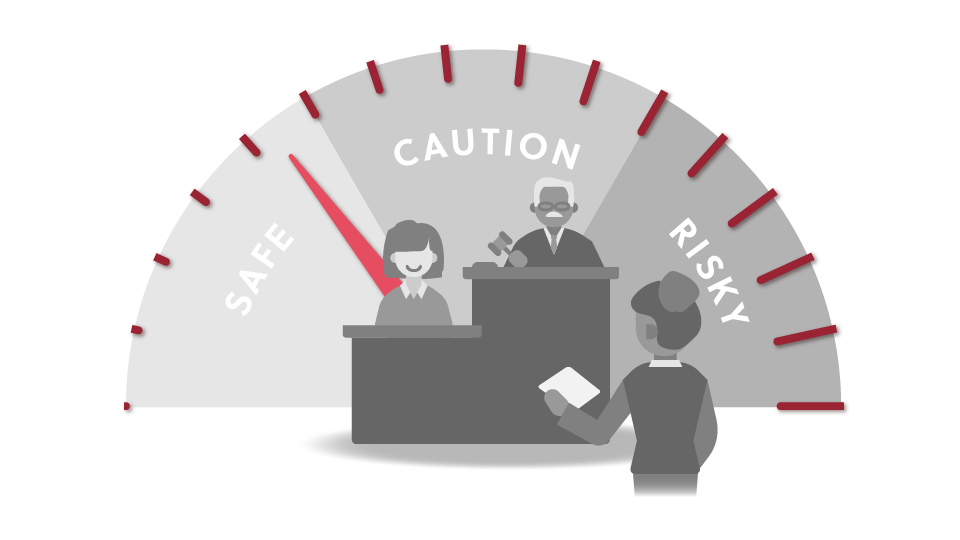
Resources: Expert Validation Protocol
Trust the tests you take
Testing offered by UNA is always kept up-to-date — written by subject matter experts and validated with real, true-to-life experience.

What is validation?
Validity measures effectiveness.
Validation ensures content is job-related, fair for all, necessary on the first day, and essential for safe and effective performance.
UNA Test uses Expert Validation Protocol (EVP), where practicing subject matter experts identify critical job duties, knowledge, skills, and abilities in their clinician specialty. These experts then create test items directly based on those key findings.
The EVP process is rigorous to ensure your assessments are legally defensible and accurately determine baseline competency.
Why is validation important?
Validation is crucial and not just a buzzword. Validity helps protect you from legal risk.
When testing providers say their content is validated, it means each and every test was created using a formal methodology with backed by empirical evidence.
This supporting evidence is necessary if an employer faces legal challenges for discriminatory hiring practices.

Beware of red flags!
Any of the following scenarios put your organization at increased risk.
Due dilligence is key — ask your provider a few simple questions about the details of their content.

